Search results
Projects
Creative Care
Exploring creative practice and teaching in health and wellbeing
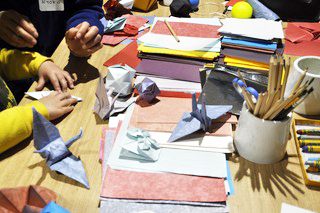
Creative Care researchers and students engage in creative research that intersects with health, wellbeing and the human lived experience. Creative Care projects are undertaken through diverse mediums; they are site specific social practices. The collaborative and interdisciplinary research is realised through exhibitions, performances, events, publications, or undertaken within health and social care settings, and with industry partners.
In August 2019, Creative Care presented Hand Festival at Peter MacCallum Cancer Centre in Melbourne. The team, along with Professor Rebecca Hilton (University Arts Stockholm), organised the social practice choreographed event designed with a focus on the hand for trust and intimate hand activities. Seventeen artists, colleagues, student nurses from RMIT, and Peter Mac staff and patients participated in hand drawing, origami, hand massages, wax modelling, mbira, knitting, cat’s cradle and more. Later that month, the team ran Hands + Mouth: Boundaries of the Body, an experimental and participatory “world cafe” event which explored the boundaries of the body at the end of life (touch, embodiment, gestures and more) through roving conversations about end of life scenarios with a focus on death and dying, ageing and illness and how they intersect with culture, the senses and place.
You can find out more about the Creative Care project on the CAST Website.
If you would like to get involved with this project, fill out the form below or reach out to project leaders via the contact info provided alongside each bio.
People
Keely Macarow
Associate Professor
School: School of Art
Keely Macarow is Coordinator of Postgraduate Research in the School of Art at RMIT. Keely’s research is focused on socially engaged art and the nexus between creative arts, social justice, health and wellbeing, and social and natural science. Currently, Keely is a member of The Untitled (a collective of artists, urban and graphic designers, architects and housing researchers based in Melbourne and Stockholm) who produce creative works, publications and interventions in Australia and Sweden to advocate for Homefullness (rather than homelessness). Her film, video and exhibition projects have been presented in Australia, the UK, the US, Germany, Belgium, Austria, Sweden, Hungary, France, Scotland and Denmark.
Aesthetics, Politics and Histories: The Social Context of Art
AAANZ Conference 2018
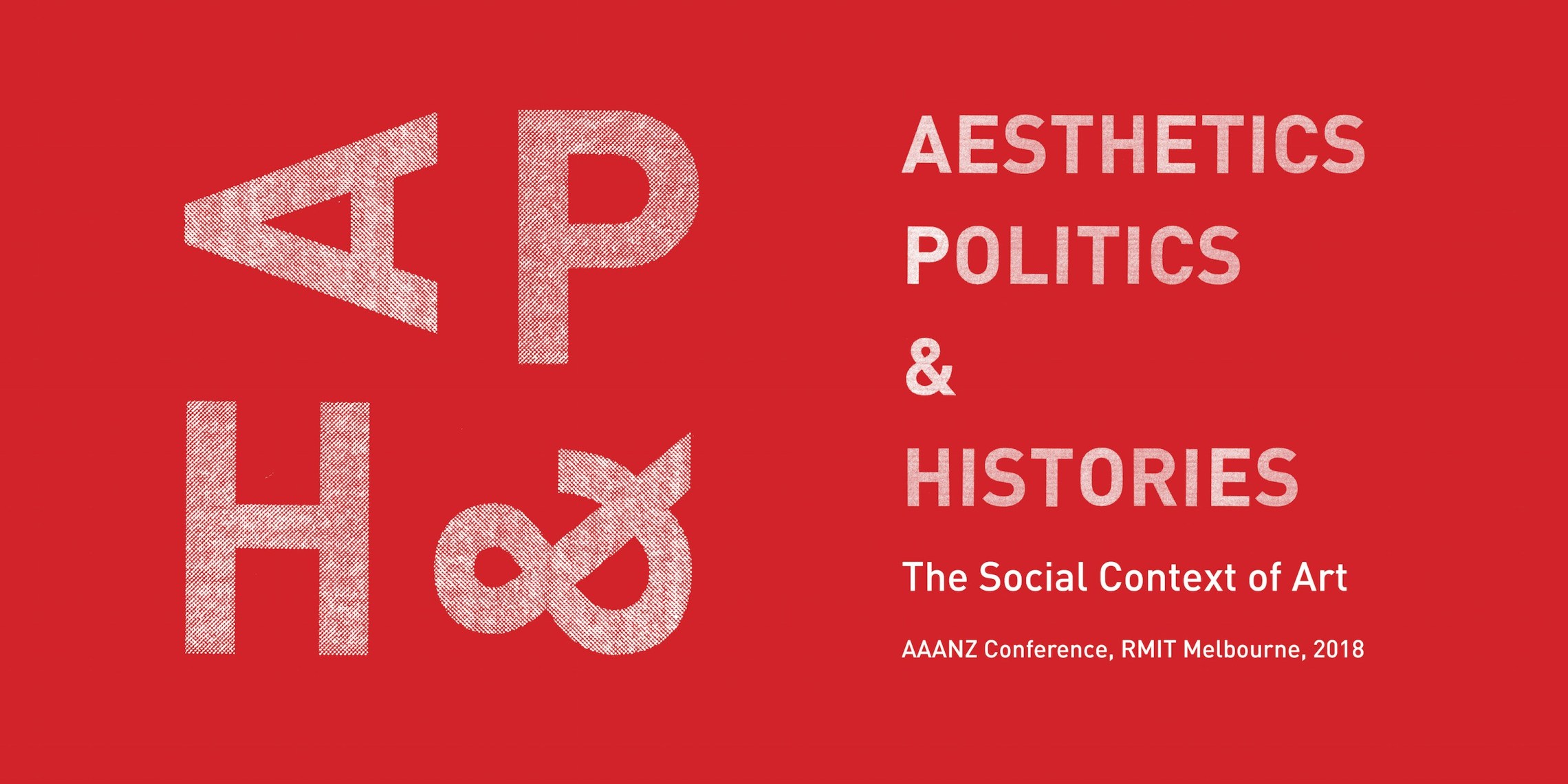
The 2018 AAANZ conference opens critical dialogue on the histories of art by examining the social contexts of aesthetics and politics. Bringing together art historians, theorists, curators, critics, and artists from across the region, the conference offers a stimulating four-day program of panels and papers, publication prizes, masterclasses and encounters with Melbourne’s vibrant arts sector with a parallel artistic program to be announced in coming months.
The conference features distinguished keynote speakers who will present expanded and alternative frameworks for understanding the diverse contexts and histories of art. Gabi Ngcobo (South Africa), curator of the 10th Berlin Biennale; Genevieve Grieves (AUS), Head of the First Peoples Department at Museums Victoria; and Ema Tavola (Fiji), independent curator are each engaged in critical curatorial practices aimed at democratising and decolonising art institutions and opening up art collections to alternative perspectives and narratives traditionally overlooked by museums and galleries. Art historian Professor Griselda Pollock (UK) from Leeds University is renowned for her postcolonial, queer feminist analysis of the visual arts, visual culture and cultural theory and research of trauma and the aesthetic in contemporary art. Curator and Associate Professor David Teh specialises in contemporary art in Southeast Asia.
The intersection of art and society is where differing worldviews and opposing epistemologies can meet and clash. Art offers a site for modelling political alternatives, questioning dominant discourses, and producing new historical narratives. Responding to the political, economic and environmental tensions of the present moment, the conference explores the relationship of the arts to social life throughout history. Located in a region marked by multiple and overlapping colonial and postcolonial histories and contemporary processes of globalisation, the conference aims to initiate critical dialogues that foreground the complex contexts, diverse practices, multiple histories, and contested trajectories of art.
KEYNOTE SPEAKERS
Genevieve Grieves is Worimi – traditionally from mid north coast New South Wales – and has lived on Kulin country in Melbourne for many years. She is an educator, curator, filmmaker, artist and oral historian who has accumulated nearly twenty years’ experience in the arts and culture industries. Some of her projects include the documentary, Lani’s Story; the video installation, Picturing the Old People; and, she was the Lead Curator of the internationally award-winning First Peoples exhibition at the Melbourne Museum. Genevieve has a role as a public intellectual and speaker and is undertaking her PhD in arts, memorialisation and frontier violence. She is Head of the First Peoples Department at Museums Victoria.
Gabi Ngcobo is the curator of the 10th Berlin Biennale. Since the early 2000s Ngcobo has been engaged in collaborative artistic, curatorial, and educational projects in South Africa and on an international scope. She is a founding member of the Johannesburg based collaborative platforms NGO – Nothing Gets Organised and Center for Historical Reenactments (CHR, 2010 – 14). NGO focusses on processes of self-organization that take place outside of predetermined structures, definitions, contexts, or forms. CHR responded to the demands of the moment through an exploration of how historical legacies impact and resonate within contemporary art.
Recently Ngcobo co-curated the 32nd Bienal de São Paulo, which took place in 2016 at the Ciccillo Matarazzo Pavilion in São Paulo, and A Labour of Love at Weltkulturen Museum, Frankfurt am Main in 2015⁄16) and travelled to the Johannesburg Art Gallery in 2017. She has been teaching at the Wits School of Arts, University of Witswatersrand, ZA, since 2011. Her writings have been published in various catalogues, books, and journals. She currently lives and works between Johannesburg and Berlin.
You can find out more about the event here.
If you would like to get involved with this project, fill out the form below or reach out to project leaders via the contact info provided alongside each bio.
People
Marnie Badham
Senior Research Fellow/ Senior Lecturer
School: School of Art
With a twenty-five-year history of art and social justice practice Australia and Canada, Marnie’s research sits at the intersection of socially engaged art, community-based research methodologies and the politics of cultural measurement. Marnie is currently focused on a series of creative cartographies registering emotion in public space; expanded curation projects on the aesthetics and politics of food; and a book project The Social Life of Artist Residencies: connecting with people and place not your own. Marnie is Senior Research Fellow at the School of Art following the prestigious award of Vice Chancellor’s Postdoctoral Research Fellow at RMIT University. Marnie co-leads the Cultural Value Impact Network and is acting Leader for CAST Contemporary Art and Social Transformation research group.
Daniel Palmer
Associate Dean
School: School of Art
Daniel Palmer is Associate Dean of Research and Innovation in the School of Art at RMIT University.
Daniel Palmer’s research and professional practice focuses on contemporary art and cultural theory, with a particular emphasis on photography and digital media. Prior to joining RMIT in 2018, Palmer was Associate Dean of Graduate Research and Associate Professor in the Art History & Theory Program at Monash Art, Design & Architecture. He also has a long association with the Centre for Contemporary Photography in Melbourne, first as a curator and later on the board of management.
Palmer’s book publications include Photography and Collaboration: From Conceptual Art to Crowdsourcing (Bloomsbury 2017); Digital Light (Open Humanities Press, 2015), edited with Sean Cubitt and Nathaniel Tkacz; The Culture of Photography in Public Space (Intellect 2015), edited with Anne Marsh and Melissa Miles; Twelve Australian Photo Artists (Piper Press, 2009), co-authored with Blair French; and Photogenic (Centre for Contemporary Photography, 2005). His scholarly writings on photography and contemporary art have appeared in journals such as Photographies, Philosophy of Photography, Angelaki, Reading Room and the Australian and New Zealand Journal of Art. Palmer has also published over sixty catalogue essays and fifty art reviews since 1997, in art magazines including Art and Australia, Photofile and Frieze.
Palmer has been the recipient of various awards and grants, and has been Chief Investigator on multiple ARC projects, including the ARC Discovery Project ‘Genealogies of Digital Light’ (2008 – 11) with Sean Cubitt and Les Walkling; an ARC Linkage Project ‘Photography as a Crime’ (2009 – 2012) with Anne Marsh, Melissa Miles, Mark Davison and the Centre for Contemporary Photography; and the ARC Discovery Project ‘Curating Photography in the Age of Photosharing’; (2015 – 2017) with Martyn Jolly. Palmer is currently a researcher on the ARC Discovery Project ‘Digital Photography: Mediation, Memory and Visual Communication’ (2020 – 2022) with Scott McQuire, Nikos Papastergiadis, Sean Cubitt and Celia Lury.
Understanding Roblox Play
We seek young Roblox players to interview!
We are seeking participants between the ages of 9 and 18 who play Roblox for one hour studies.
Roblox is a multiplayer online platform and game creation system. By enabling its users to playfully design and share their own games, as well as to play games created by others, Roblox attracts millions of young players each year. Despite its growing presence, very little research into Roblox play in Australia has taken place. So in this study, we aim to examine how young people incorporate Roblox play in their social and everyday lives. This is the first study to examine the social uses of Roblox play gaming in Australia, and with it, we aim to understand the Roblox phenomenon as a new model of social play within contemporary games culture.
Our study involves two methods of collecting data: Observation and/or Interview.
-
Observation
For half an hour, we observe individual participants as they play Roblox at home. We ask brief questions about how they interact with the game. With prior permission, we may photograph players or their screens as visual evidence to show exactly how participants are interacting with devices and screens. This is crucial in determining the tactile, gestural and haptic nature of their play. - Interview
For half an hour, we talk with participants about their game play. Topics covered in the interview with players may include the following:
• Do you play, or have you played other games in the past?
• Do you use Roblox as a social tool? If so, then how?
• Do you play Roblox with friend and/or family members?
• If you were to explain why Roblox matters to a non-player, what would you say?
You can choose to only do the interview and not the observation if you wish. All participation is entirely voluntary and completely anonymous. Your privacy is our concern.
Through this research, we hope to enrich community and policy understanding of the media literacies and social inclusion practices emerging in and around Roblox. We anticipate that this may inform media effects debates and heighten understanding of games as a core aspects of contemporary everyday practice.
You can find our more about the research here.
Want to be involved?
It’s easy. Just email the research contact Dr Hugh Davies:
hugh.davies@rmit.edu.au
If you would like to get involved with this project, fill out the form below or reach out to project leaders via the contact info provided alongside each bio.
People
Larissa Hjorth
Distinguished Professor and Director, Design and Creative Practice
School: Enabling Capability Platforms
Larissa Hjorth is a digital ethnographer, artist, Distinguished Professor and director of the Design & Creative Practice ECP platform at RMIT University. With Professor Heather Horst, she co-founded the Digital Ethnography Research Centre (DERC). Previously, Hjorth was Deputy Dean, Research & Innovation, in the School of Media & Communication (2013−2016). Hjorth served on the inaugural Australian Research Council (ARC) Engagement & Impact Pilot study assessment panel for humanities and creative practice.
Hjorth studies the socio-cultural dimensions of mobile media and play practices in the Asia-Pacific region with an emphasis on interdisciplinary, collaborative and cross-cultural approaches. She has published a dozen co-authored books, edited over a dozen Handbooks/Companions and has over 40 journal articles.
More recently, Hjorth’s work has become concerned with how we can bring creative, social and design solutions to the growing ageing populations and, in turn, how we might consider scenarios of what it means to die well. She is also studying how our “more-than-human” companions can teach us about new media in everyday life. Hjorth’s last book, Haunting Hands (Oxford Uni Press) looked at how mobile media is being deployed in situations of grief and trauma, her previous book explored how art practice can teach us new acumen into the climate change debate.
Hjorth’s books include Haunting Hands (with Cumiskey 2017), Screen Ecologies (with Pink, Sharp & Williams 2016), Digital Ethnography (Pink et al. 2016) Mobile Media in the Asia-Pacific (2009), Games & Gaming (2010), Online@AsiaPacific (with Arnold 2013), Understanding Social Media (with Hinton 2013), and Gaming in Locative, Social and Mobile Media (with Richardson 2014).
Hugh Davies
Postdoctoral Research Fellow
School: Games
Hugh Davies is an artist, curator and researcher of games and play. His practice explores histories of media devices and cultures of games in the Asia Pacific Region. Awarded a PhD in Art, Design and Architecture from Monash University in 2014, Hugh’s studies in game cultures have been supported with fellowships from Tokyo Art and Space, M+ Museum of Visual Culture and the Hong Kong Design Trust. Hugh is currently a postdoctoral research fellow at RMIT in Melbourne, Australia.
Being Wiradjuri Together
Co-designing self determination
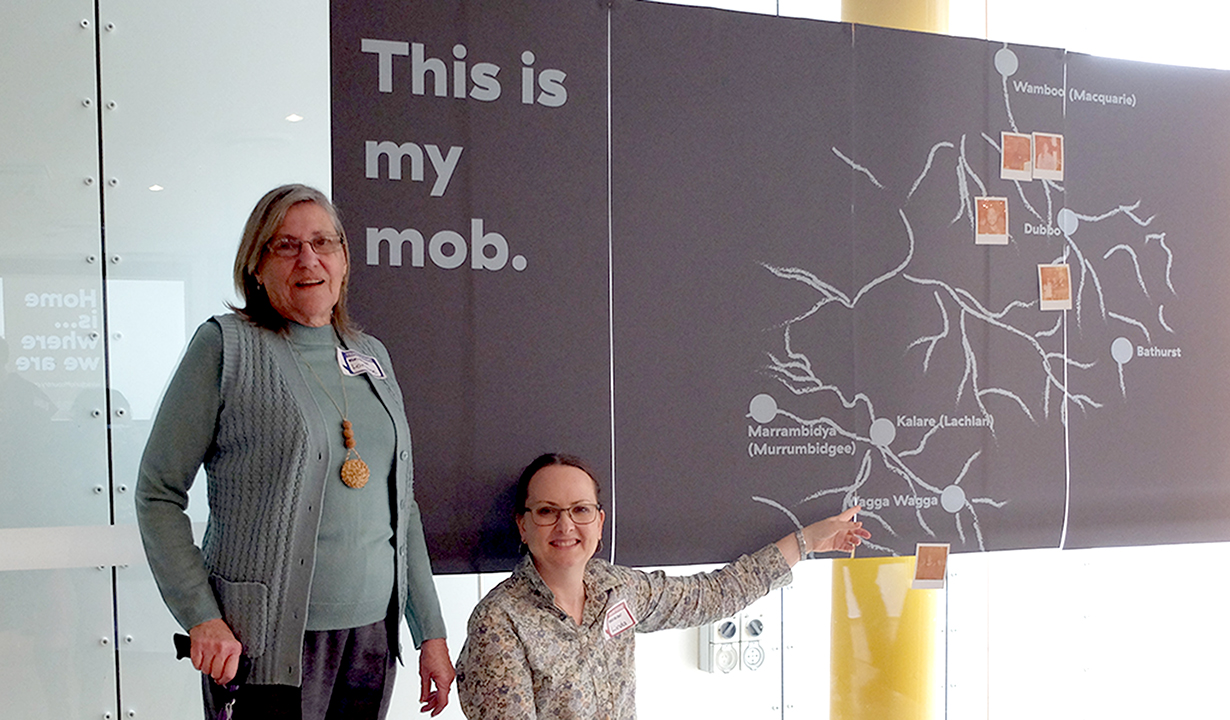
What does it mean to be non-Indigenous and design with, and in response to, Indigenous peoples and knowledge? How can design be of substantial, long-lasting benefit to Indigenous people?
Being Wiradjuri Together is about Wiradjuri people who are self-determining — renewing cultural practices and expressing what it means to be Wiradjuri. This is catalyzed through co-designing with Wiradjuri to create various mechanisms — print, video, social media, digital platform and community events — to connect, share and be Wiradjuri together.
If you would like to get involved with this project, fill out the form below or reach out to project leaders via the contact info provided alongside each bio.
People
Peter West
Lecturer, Communication Design
School: Media and Communication
Peter West is a Communication Design lecturer and PhD candidate. He has a diverse teaching practice which moves across areas such as communications strategy, art direction and design for social change. He draws upon practical industry experience as both a freelance art director and copy writer within both multinational communications agencies and health related communications strategies within the not for profit sector.
His research focuses on ways in which Non-Indigenous creative practitioners can better understand their subject position in relation to Indigenous sovereignty. West is as a chief investigator on Sovereign Weaving Project: ‘Practicing Sovereign Relations through Weaving a Treaty’. The project seeks to support Indigenous Nations to practice their sovereignty, through the realisation of a woven treaty as the conclusion of their diplomatic responsibilities.
COVID frontlines in Australia and New Zealand
Processes, Practices and Perceptions

Australia and New Zealand have each enjoyed a high degree of success in managing outbreaks of COVID 19. Both countries have been early adopters of mask use and contact tracing. The COVID travel bubble organised between Australia and New Zealand speaks to the cultural proximity of the two countries and the shared approaches in tackling the pandemic.
This study seeks to interview participants from across Australia and New Zealand to record their shifting perceptions towards the infrastructural changes and biometrics brought by COVID-19. Specifically, we want to enquire about people’s perceptions and practices of:
• Masks and other PPE use
• Contact tracing via apps, QR codes, pen and paper
• COVID testing and temperature monitoring
• Vaccinations
Our aim is to record the experiences and conditions of participants in New Zealand and Australia to discover how new technologies and practices add new layers of both work and technological awareness to daily routines. We seek to reveal ways of improving techniques of technological delivery and the lives of people that these processes affect.
We welcome all participants and are very keen to hear from a diverse representation of people. We especially welcome older people as well as frontline and essential workers; individuals who, to perform their roles, come into direct contact with the public.
To participate just let us know at the GET INVOLVED link at the bottom of this page.
You can find support with issues related to COVID here if you are in New Zealand, and here if you are in Australia.
PARTICIPANT INFORMATION AND CONSENT FORM
If you would like to get involved with this project, fill out the form below or reach out to project leaders via the contact info provided alongside each bio.
People
Larissa Hjorth
Distinguished Professor and Director, Design and Creative Practice
School: Enabling Capability Platforms
Larissa Hjorth is a digital ethnographer, artist, Distinguished Professor and director of the Design & Creative Practice ECP platform at RMIT University. With Professor Heather Horst, she co-founded the Digital Ethnography Research Centre (DERC). Previously, Hjorth was Deputy Dean, Research & Innovation, in the School of Media & Communication (2013−2016). Hjorth served on the inaugural Australian Research Council (ARC) Engagement & Impact Pilot study assessment panel for humanities and creative practice.
Hjorth studies the socio-cultural dimensions of mobile media and play practices in the Asia-Pacific region with an emphasis on interdisciplinary, collaborative and cross-cultural approaches. She has published a dozen co-authored books, edited over a dozen Handbooks/Companions and has over 40 journal articles.
More recently, Hjorth’s work has become concerned with how we can bring creative, social and design solutions to the growing ageing populations and, in turn, how we might consider scenarios of what it means to die well. She is also studying how our “more-than-human” companions can teach us about new media in everyday life. Hjorth’s last book, Haunting Hands (Oxford Uni Press) looked at how mobile media is being deployed in situations of grief and trauma, her previous book explored how art practice can teach us new acumen into the climate change debate.
Hjorth’s books include Haunting Hands (with Cumiskey 2017), Screen Ecologies (with Pink, Sharp & Williams 2016), Digital Ethnography (Pink et al. 2016) Mobile Media in the Asia-Pacific (2009), Games & Gaming (2010), Online@AsiaPacific (with Arnold 2013), Understanding Social Media (with Hinton 2013), and Gaming in Locative, Social and Mobile Media (with Richardson 2014).
Hugh Davies
Postdoctoral Research Fellow
School: Games
Hugh Davies is an artist, curator and researcher of games and play. His practice explores histories of media devices and cultures of games in the Asia Pacific Region. Awarded a PhD in Art, Design and Architecture from Monash University in 2014, Hugh’s studies in game cultures have been supported with fellowships from Tokyo Art and Space, M+ Museum of Visual Culture and the Hong Kong Design Trust. Hugh is currently a postdoctoral research fellow at RMIT in Melbourne, Australia.
Ingrid Richardson
Professor
School: Media and Communication
Professor Ingrid Richardson has been teaching, supervising and researching in the fields of digital media, mobile media and games for over twenty years. She has a broad interest in the human-technology relation and has published widely on the phenomenology of games and mobile media, digital ethnography and innovative research methods, the relation between technology use and wellbeing, and the cultural effects of urban screens, wearable technologies, virtual and augmented reality, remix culture and web-based content creation and distribution. Ingrid has led or co-led 14 funded research projects, the most recent being an ARC DP [Games of Being Mobile] with Larissa Hjorth. She is contributing co-editor of Studying Mobile Media (Routledge, 2011) and co-author of Gaming in Social, Locative and Mobile Media (Palgrave, 2014), Ambient Play (MIT, 2020), Understanding Games and Game Cultures (Sage, 2020), Exploring Minecraft: Ethnographies of Play and Creativity (Palgrave, forthcoming), and Mobile Media and the Urban Night (Palgrave, forthcoming). Ingrid brings ten years’ experience in university-level HDR management and during this time has actively championed and supported creative methods and practice-led postgraduate research. Over the past five years she has also developed a passion for teaching critical web literacy skills to undergraduate students across all disciplines.
Mark Andrejevic
Professor
School: Media, Film, and Journalism
Mark Andrejevic (Professor, School of Media, Film, and Journalism, Monash University) contributes expertise in the social and cultural implications of data mining, and online monitoring. He writes about monitoring and data mining from a socio-cultural perspective, and is the author of three monographs and more than 60 academic articles and book chapters. He was the Chief Investigator for an ARC QEII Fellowship investigating public attitudes toward the collection of personal information online ($390,000; 2010 – 2014).
Andrejevic has experience conducting both quantitative and qualitative research and is experienced in the focus group and interview methodologies. His work on the personal information project, for example, generated a book, 11 articles and book chapters, and a report on Australian attitudes toward online privacy that was launched by the Federal Privacy Commissioner.
Ruth De Souza
VC Research Fellow
School: School of Art
Dr Ruth De Souza (FACN) is a Vice-Chancellor’s Fellow at RMIT, based in the School of Art and DCP Research Platform. She is a nurse, academic and a community-engaged researcher in gender, race, health and digital technologies. Ruth’s Fellowship will engage health professionals in finding new ways to understand, co-design and implement sustainable cultural safety initiatives in a range of health contexts in response to health inequities.
Prior to moving to Australia in 2013, Ruth worked at AUT University where she taught in the School of Nursing, led the Bachelor of Health Promotion, and was a Senior Research Fellow at the Centre for Asian and Migrant Health Research. Since her arrival in Australia, Ruth has undertaken a wide range of roles, including leading an undergraduate nursing program at Monash University’s Berwick campus; spearheading a unique community-engaged joint research appointment with North Richmond Community Health exploring how wearables and other digital technologies are perceived by people from culturally and linguistically different backgrounds and co-ordinating an interdisciplinary Data Systems and Society Research Network across the University of Melbourne. Ruth has also investigated the applicability of cultural safety in Australia, working closely with The Congress of Aboriginal and Torres Strait Islander Nurses and Midwives (CATSINaM), presenting at their National Professional Development Conferences and delivering training on cultural safety. She has also undertaken a two-year cultural safety project with cohealth (a not-for-profit community health organisation) and Our Watch who work for the primary prevention of violence against women and their children.
Creative Ecologies
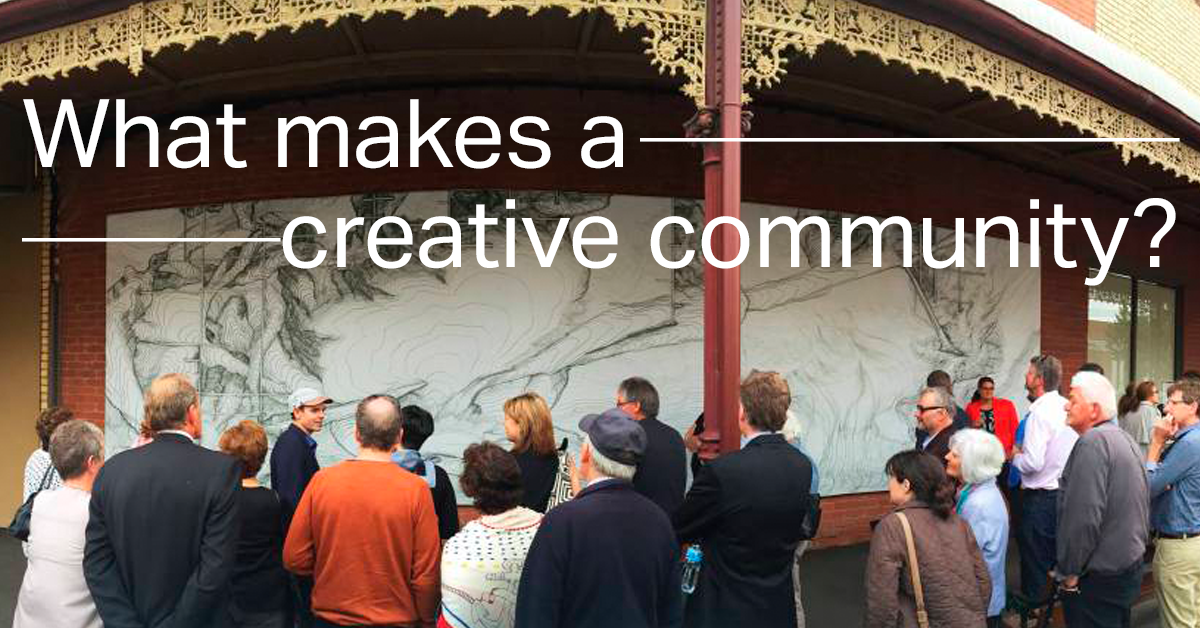
Creative Ecologies is a collaborative investigation into what makes Australia’s creative landscapes tick. The aim is to understand what it takes to build thriving creative communities and then develop tools to foster their growth.
The goal of the project is to develop a simple way of articulating the complex ways creative ecologies operate. Core to this will be highlighting connections to the wider society and demonstrating value beyond purely economic indicators. The long-term ambition of Creative Ecologies is to expand our understanding and appreciation of creative exertion – and have its central place in Australia’s national character recognised. It will do this by developing and raising awareness of a framework and resource for policymakers, practitioners and advocates. This will be a live, interactive visual map of the nation’s creative ecologies, combining data, case studies and avenues for connection across the sector.
The project began in late 2017 and the arising work and findings including a national survey, one-on-one consultations, interactive workshops were presented at the Engaging For Impact conference in February 2018. Creative Ecologies now has an expanded list of RMIT researchers on board
LEAD RESEARCHER
○Jan van Schaik, Senior Lecturer, School Architecture & Urban Design
SUPPORTING RESEARCHERS
○Marnie Badham, Vice Chancellor’s Postdoctoral Fellow, School of Art
○Bronwyn Coate, Senior Lecturer, Economics, Finance and Marketing
○Gretchen Coombs, Postdoctoral Fellow, DCP ECP
○Christine Phillips, Senior Lecturer, Architecture & Urban Design
○Professor Jason Potts, Economics, Finance and Marketing
○Noel Waite, Senior Lecturer, Communication Design
○ Professor Ellie Rennie, Digital Ethnography Research Centre
○Professor Mark Sanderson, Computer Science and Information Technology
You can find out more about CREATIVE ECOLOGIES here.
If you would like to get involved with this project, fill out the form below or reach out to project leaders via the contact info provided alongside each bio.
People
Jan van Schaik
Senior Lecturer
School: Architecture and Urban Design
Jan van Schaik is a practising architect at MvS Architects, a researcher and senior lecturer at RMIT Architecture & Urban Design, and a creative and cultural industries strategist at Future Tense. His is the leader of the ‘Culture and Society’ research stream, and a PhD superrvisor of established architects conducting post-professional reflective practice research. Jan is the founder of the WRITING & CONCEPTS lecture and publication series which reflects of the role that writing plays in visual arts practice. Jan is also one of the founders of Creative Ecologies„ a collaborative investigation into what makes Australia’s creative landscapes tick. The aim is to understand what it takes to build thriving creative communities and then develop tools to foster their growth.
Sharing animal pictures on social media
Pandemic Strategies of Care
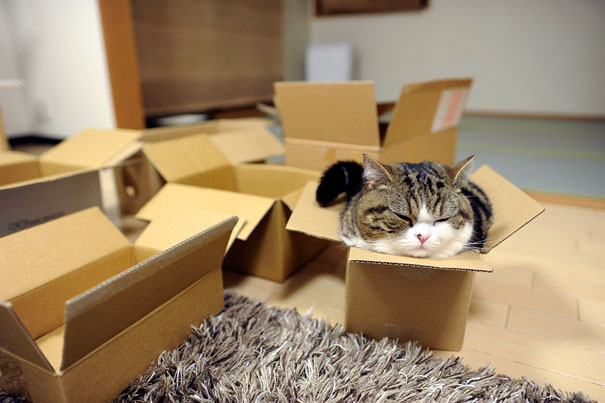
We are researchers from RMIT. We invite you to take part in this research project exploring the sharing of animal pictures on social media as part of pandemic strategies of care.
The aim of this research is to understand the motivations, and collect examples, of sharing animal pictures on social media as part of pandemic strategies of care. It seeks to provide details into meanings as part of this cultural practice.
If you decide you want to take part in the research project, you can access the Participant Information and Consent Form below. It tells you about the research project and explains the processes involved with taking part. Knowing what is involved will help you decide if you want to take part in the research.
Participation is easy. Just email your images and comments to the lead researcher, Professor Larissa Hjorth: larissa.hjorth@rmit.edu.au
We would love to have you and your pets involved!
If you would like to get involved with this project, fill out the form below or reach out to project leaders via the contact info provided alongside each bio.
People
Larissa Hjorth
Distinguished Professor and Director, Design and Creative Practice
School: Enabling Capability Platforms
Larissa Hjorth is a digital ethnographer, artist, Distinguished Professor and director of the Design & Creative Practice ECP platform at RMIT University. With Professor Heather Horst, she co-founded the Digital Ethnography Research Centre (DERC). Previously, Hjorth was Deputy Dean, Research & Innovation, in the School of Media & Communication (2013−2016). Hjorth served on the inaugural Australian Research Council (ARC) Engagement & Impact Pilot study assessment panel for humanities and creative practice.
Hjorth studies the socio-cultural dimensions of mobile media and play practices in the Asia-Pacific region with an emphasis on interdisciplinary, collaborative and cross-cultural approaches. She has published a dozen co-authored books, edited over a dozen Handbooks/Companions and has over 40 journal articles.
More recently, Hjorth’s work has become concerned with how we can bring creative, social and design solutions to the growing ageing populations and, in turn, how we might consider scenarios of what it means to die well. She is also studying how our “more-than-human” companions can teach us about new media in everyday life. Hjorth’s last book, Haunting Hands (Oxford Uni Press) looked at how mobile media is being deployed in situations of grief and trauma, her previous book explored how art practice can teach us new acumen into the climate change debate.
Hjorth’s books include Haunting Hands (with Cumiskey 2017), Screen Ecologies (with Pink, Sharp & Williams 2016), Digital Ethnography (Pink et al. 2016) Mobile Media in the Asia-Pacific (2009), Games & Gaming (2010), Online@AsiaPacific (with Arnold 2013), Understanding Social Media (with Hinton 2013), and Gaming in Locative, Social and Mobile Media (with Richardson 2014).
Social Games for Change
Japan Workshop
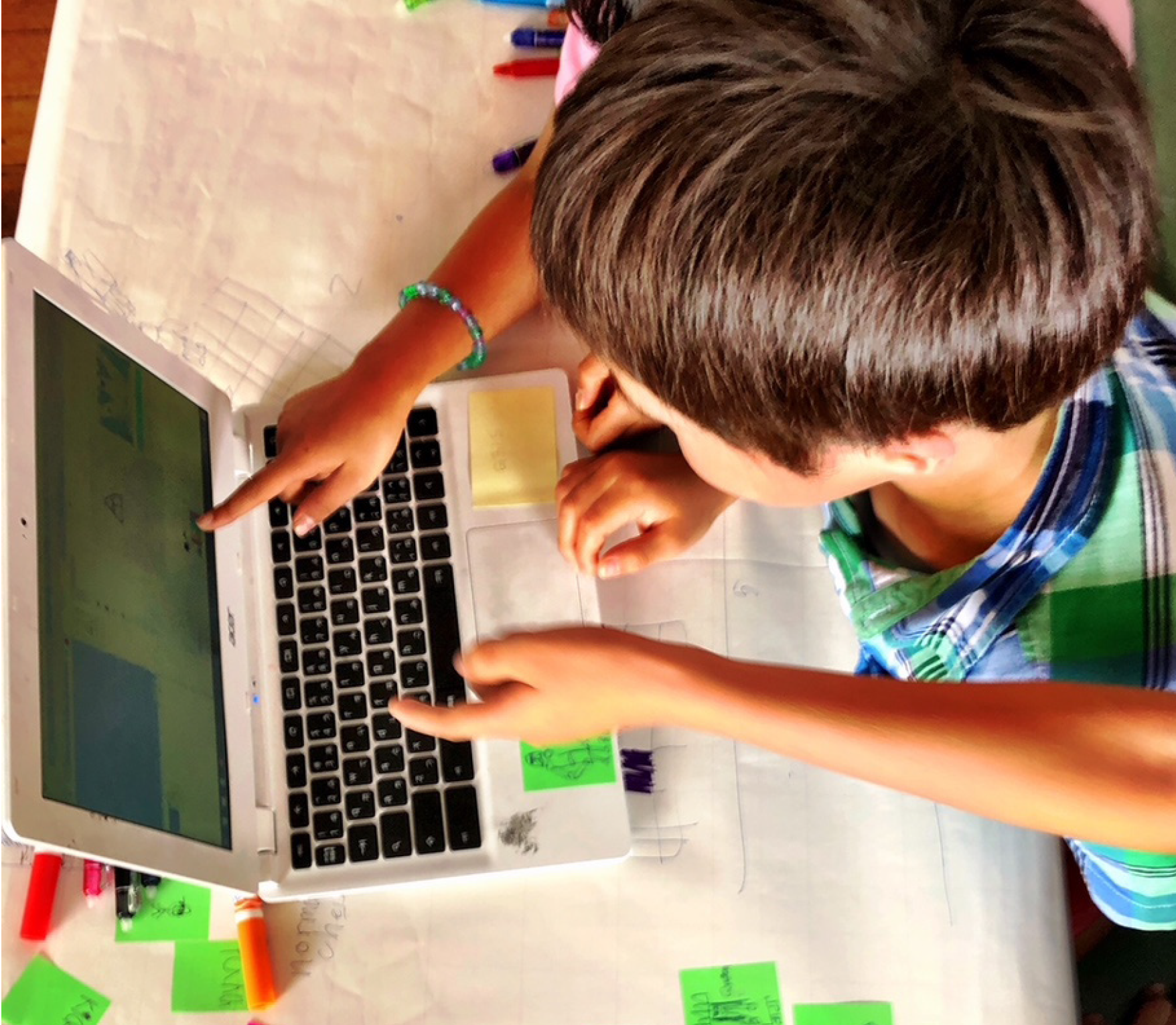
Game design involves a creative and iterative process guided by prototyping, playing and testing and then refining. Through our Social Games for Change Workshops we’re making the game design process accessible and actionable for any topic and varying participants.
The Social Games For Change Workshop introduces and encourages STEAM (Science, Technology, Engineering, Arts, Maths) skills and capabilities in the primary School classroom. This iteration of the workshop took place on Thursday the 7th June at Kyoto International Primary School, Japan. The workshop was conducted in English and delivered to a class of 18 students.
If you would like to get involved with this project, fill out the form below or reach out to project leaders via the contact info provided alongside each bio.
People
Larissa Hjorth
Distinguished Professor and Director, Design and Creative Practice
School: Enabling Capability Platforms
Larissa Hjorth is a digital ethnographer, artist, Distinguished Professor and director of the Design & Creative Practice ECP platform at RMIT University. With Professor Heather Horst, she co-founded the Digital Ethnography Research Centre (DERC). Previously, Hjorth was Deputy Dean, Research & Innovation, in the School of Media & Communication (2013−2016). Hjorth served on the inaugural Australian Research Council (ARC) Engagement & Impact Pilot study assessment panel for humanities and creative practice.
Hjorth studies the socio-cultural dimensions of mobile media and play practices in the Asia-Pacific region with an emphasis on interdisciplinary, collaborative and cross-cultural approaches. She has published a dozen co-authored books, edited over a dozen Handbooks/Companions and has over 40 journal articles.
More recently, Hjorth’s work has become concerned with how we can bring creative, social and design solutions to the growing ageing populations and, in turn, how we might consider scenarios of what it means to die well. She is also studying how our “more-than-human” companions can teach us about new media in everyday life. Hjorth’s last book, Haunting Hands (Oxford Uni Press) looked at how mobile media is being deployed in situations of grief and trauma, her previous book explored how art practice can teach us new acumen into the climate change debate.
Hjorth’s books include Haunting Hands (with Cumiskey 2017), Screen Ecologies (with Pink, Sharp & Williams 2016), Digital Ethnography (Pink et al. 2016) Mobile Media in the Asia-Pacific (2009), Games & Gaming (2010), Online@AsiaPacific (with Arnold 2013), Understanding Social Media (with Hinton 2013), and Gaming in Locative, Social and Mobile Media (with Richardson 2014).
Hugh Davies
Postdoctoral Research Fellow
School: Games
Hugh Davies is an artist, curator and researcher of games and play. His practice explores histories of media devices and cultures of games in the Asia Pacific Region. Awarded a PhD in Art, Design and Architecture from Monash University in 2014, Hugh’s studies in game cultures have been supported with fellowships from Tokyo Art and Space, M+ Museum of Visual Culture and the Hong Kong Design Trust. Hugh is currently a postdoctoral research fellow at RMIT in Melbourne, Australia.
Jacina Leong
PhD candidate
School: Media and Communication
Jacina Leong is an artist-curator and PhD candidate in the School of Media and Communications, RMIT. Her research explores critical-creative and careful curatorial approaches to social innovation practices by museums and galleries.
Over the past decade, she has worked in hybrid new media spaces, universities, national and international festivals, regional museums and galleries, libraries and schools — to vision and deliver a diverse range of trans-disciplinary engagement programs, via highly collaborative, experimental and site-responsive processes. Most recently, Jacina was curator for Robotronica, project lead and founding member of the Guerrilla Knowledge Unit, guest facilitator of the Future Innovators Summit (Ars Electronica Tokyo Initiative), and co-curator of the provocation, Curating In The Age of Automation (RMIT & Ritsumeikan University, Kyoto).
From 2012 to 2017, Jacina worked at The Cube (QUT), establishing the inaugural STEAM engagement program for school and university students, educators and pre-service teachers. This program involved key collaborations with local, national and international organisations including Ars Electronica, LEGO Education, and Brisbane City Council. She has also worked in public program development at the Ipswich Art Gallery, collaborative learning strategy in universities, gallery management at Jan Murphy Gallery, and was advisor to the inaugural Make Nice at VIVID Festival.
Writers Immersion and Cultural Exchange
Changing the stories we tell and listen to
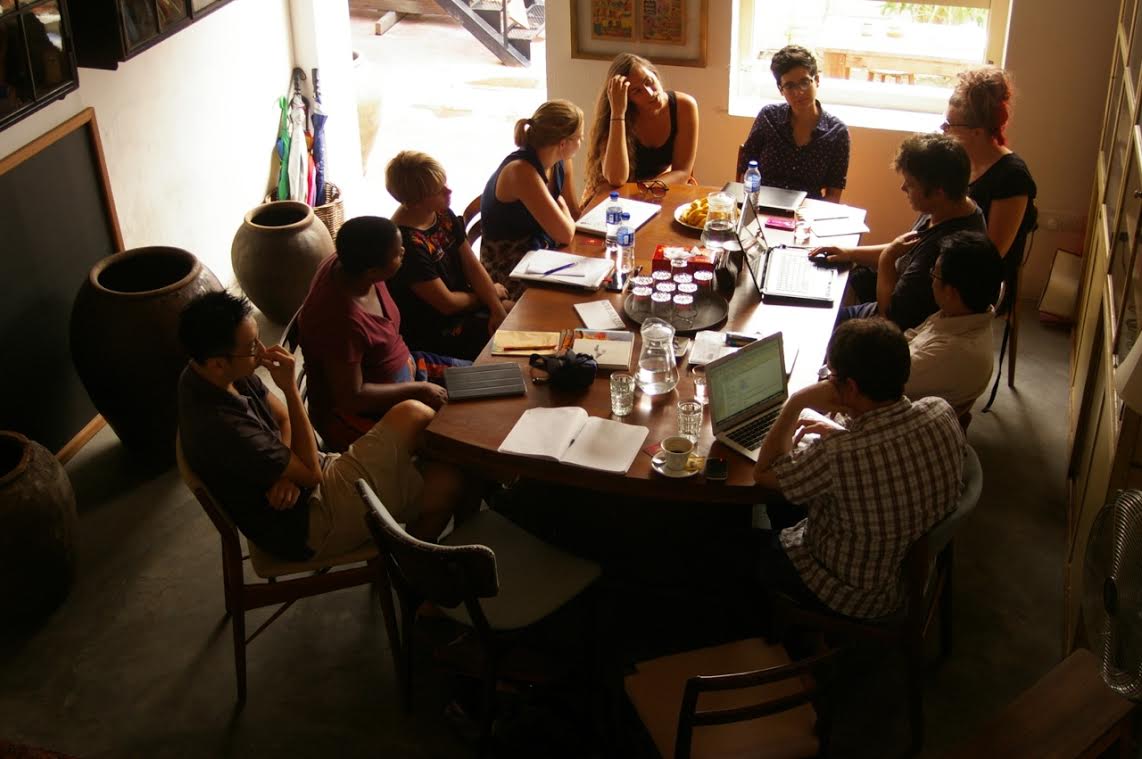
Perspectives shift and networks expand when writers step out of their comfort zone and into unfamiliar cultural spaces where they can connect and share ideas with other writers. Writers Immersion and Cultural Exchange (WrICE) program contributes to an Asia-Pacific community of writers in a collaborative way, influencing broader societal perspectives and changing the stories we tell and listen to. It provides a framework for intercultural and intergenerational dialogue — the exchange and furthering of knowledge, creativity, skills and cultural perspectives.
Visit the WrICE website.
If you would like to get involved with this project, fill out the form below or reach out to project leaders via the contact info provided alongside each bio.
People
Francesca Rendle-Short
Associate Professor and Associate Dean, Writing and Publishing
School: Media and Communication
+61 3 9925 9052
Personal website
francesca.rendle-short@rmit.edu.au
Francesca Rendle-Short is Associate Dean Writing and Publishing in the School of Media and Communication at RMIT University in Melbourne, Australia. She is co-founder of the non/fictionLab research group and co-director of WrICE (Writers Immersion and Cultural Exchange). She has a Doctor of Creative Arts from the University of Wollongong, was a recipient of an International Nonfiction Writers Fellowship to the University of Iowa, and was showcased in the Outstanding Field at Victoria College of the Arts, University of Melbourne.
Francesca Rendle-Short is an award winning novelist, memoirist and essayist. Her books include Bite Your Tongue, Imago, and The Near and The Far; also the forthcoming 100 Love Letters, and No Notes (This is writing). Her artwork is in the collection of the State Library of Queensland.
David Carlin
Professor of Creative Writing, Co-Director of the non/fictionLab, Co-Director WrICE
School: Media and Communication
9225 3934
Personal website
david.carlin@rmit.edu.au
David Carlin is a writer, creative artist and scholar. His books include The Abyssinian Contortionist, Our Father Who Wasn’t There, and (forthcoming) The After-Normal for Rose Metal Press, and 100 Atmospheres: Studies in Scale and Wonder for Open Humanities Press. David’s essays, plays, radio features, exhibitions, documentary and short films have won awards and featured at numerous international festivals. He co-edited a cross-cultural anthology of Asian and Australian writers, The Near and the Far (with Francesca Rendle-Short, Scribe 2016) and Performing Digital (Routledge, 2015), about the Circus Oz Living Archive project he led. Co-President of the NonfictioNOW Conference, the world’s leading conference in literary nonfiction, David is a Professor at RMIT University, Australia, where he co-directs WrICE and non/fictionLab.
Young people and the Anthropocene
Critical perspectives for well-being, resilience and enterprise
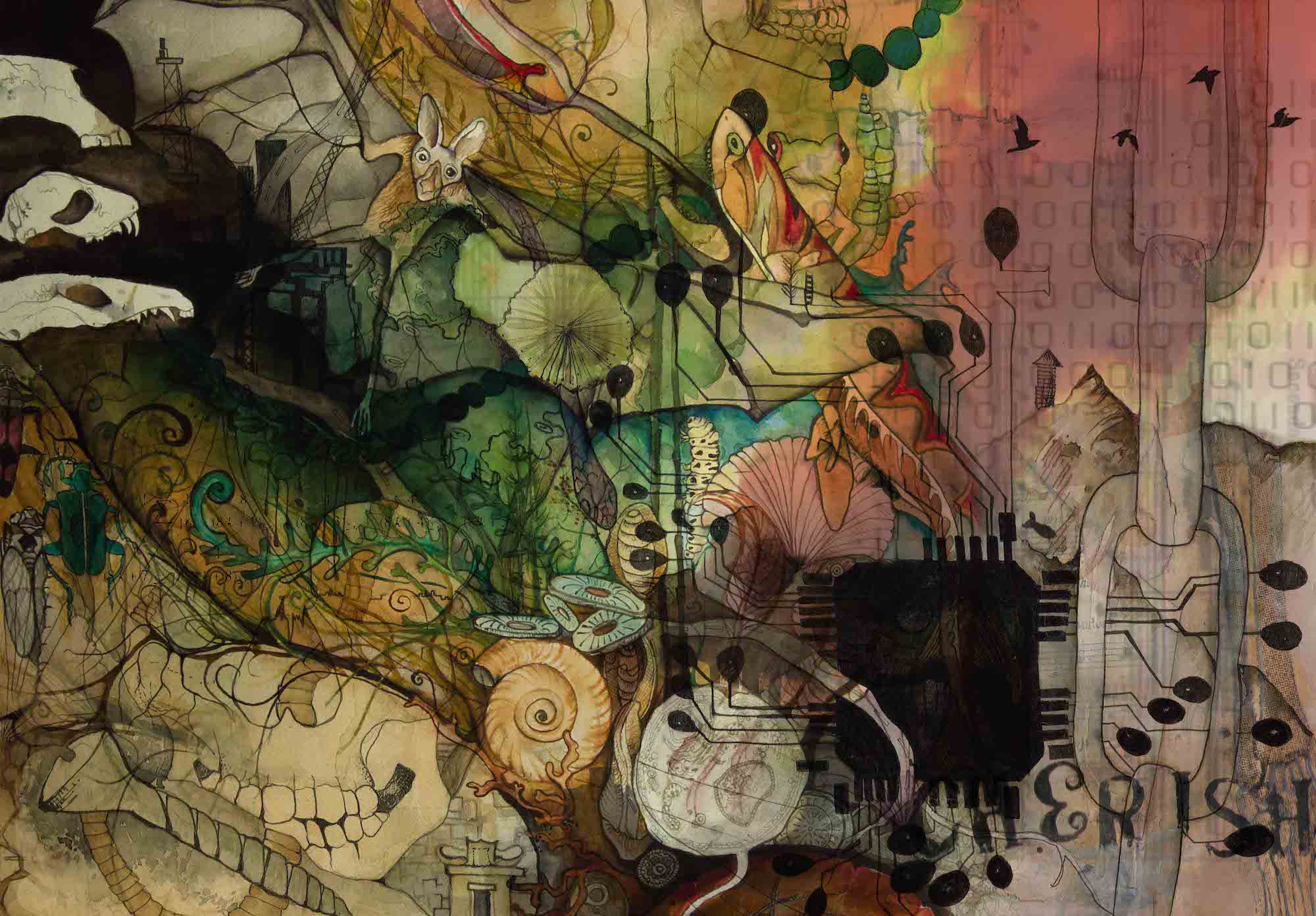
The social sciences and humanities must critically engage with the debates about the Anthropocene since humans are by definition driving the issues facing the these planetary-wide changes and the consequences that ensue. We need to find new ways of thinking through and understanding the unfolding crisis of planetary environmental systems by developing divergent forms and methods of communicating.
This project has as its aim instigating an international agenda for collaborative knowledge production and exchange that centre around well-being, resilience and enterprise for children and young people around the globe.
You can find out more about Young people and the Anthropocene here.
If you would like to get involved with this project, fill out the form below or reach out to project leaders via the contact info provided alongside each bio.
People
Peter Kelly
Professor
School: Education
Peter Kelly is Professor of Education and Head of UNESCO UNEVOC at RMIT University. His recent former role was as Associate Dean, Research and Innovation, in the School of Education at RMIT. Previous positions include at Edge Hill University (UK), Deakin University, Monash University, the University of Queensland (UQ).
Kelly is a social researcher who has published extensively on young people, social theory and globalisation. His current research interests include a critical engagement with young people and new cultures of education/work/democracy in the context of the aftermath of the Global Financial Crisis, and with the challenges associated with the emergence of the Anthropocene. He is currently the lead CI on an ARC Discovery Project (DP 170100547) Art Based Social Enterprises and Marginalised Young People’s Transitions.
With colleagues, Kelly leads a research program titled Young People’s Well-being, Resilience and Enterprise: Critical Perspectives for the Anthropocene: https://youngpeopleanthropocene.org/
Kelly has published extensively on young people and the practice of youth studies. His books include: Working in Jamie’s Kitchen: Salvation, Passion and Young Workers (2009), The Self as Enterprise: Foucault and the “Spirit” of 21st Century Capitalism (2013), The Moral Geographies of Children, Young People and Food: Beyond Jamie’s School Dinners (2014), A Critical Youth Studies for the 21st Century (2015), Young People and the Aesthetics of Health Promotion: Beyond Reason, Rationality and Risk (2016), and Neo-Liberalism and Austerity: The Moral Economies of Young People’s Health and Well-Being (2017). He has two recently published books: Rethinking Young People’s Marginalisation: Beyond neo-Liberal Futures? (2018), Young People and the Politics of Outrage and Hope (2018).
News and updates
WrICE Program Partners with Leading Asian Literary Centre
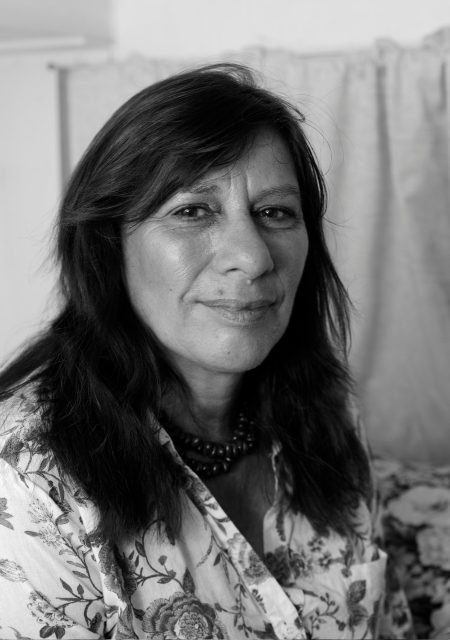
RMIT’s Writers Immersion and Cultural Exchange Program (WrICE), now in its fifth year, will partner with the Jakarta Post Writing Center in 2018. Read more
Being Wiradjuri Together – Winner 2018 Good Design Award, Social Impact

An interactive Wiradjuri-RMIT project is among the winners in the social impact category at the 2018 Good Design Awards. Read more
People
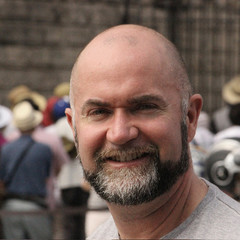
Peter West is a Communication Design lecturer and PhD candidate. He has a diverse teaching practice which moves across areas such as communications strategy, art direction and design for social change. He draws upon practical industry experience as both a freelance art director and copy writer within both multinational communications agencies and health related communications strategies within the not for profit sector.
His research focuses on ways in which Non-Indigenous creative practitioners can better understand their subject position in relation to Indigenous sovereignty. West is as a chief investigator on Sovereign Weaving Project: ‘Practicing Sovereign Relations through Weaving a Treaty’. The project seeks to support Indigenous Nations to practice their sovereignty, through the realisation of a woven treaty as the conclusion of their diplomatic responsibilities.
Peter Kelly is Professor of Education and Head of UNESCO UNEVOC at RMIT University. His recent former role was as Associate Dean, Research and Innovation, in the School of Education at RMIT. Previous positions include at Edge Hill University (UK), Deakin University, Monash University, the University of Queensland (UQ).
Kelly is a social researcher who has published extensively on young people, social theory and globalisation. His current research interests include a critical engagement with young people and new cultures of education/work/democracy in the context of the aftermath of the Global Financial Crisis, and with the challenges associated with the emergence of the Anthropocene. He is currently the lead CI on an ARC Discovery Project (DP 170100547) Art Based Social Enterprises and Marginalised Young People’s Transitions.
With colleagues, Kelly leads a research program titled Young People’s Well-being, Resilience and Enterprise: Critical Perspectives for the Anthropocene: https://youngpeopleanthropocene.org/
Kelly has published extensively on young people and the practice of youth studies. His books include: Working in Jamie’s Kitchen: Salvation, Passion and Young Workers (2009), The Self as Enterprise: Foucault and the “Spirit” of 21st Century Capitalism (2013), The Moral Geographies of Children, Young People and Food: Beyond Jamie’s School Dinners (2014), A Critical Youth Studies for the 21st Century (2015), Young People and the Aesthetics of Health Promotion: Beyond Reason, Rationality and Risk (2016), and Neo-Liberalism and Austerity: The Moral Economies of Young People’s Health and Well-Being (2017). He has two recently published books: Rethinking Young People’s Marginalisation: Beyond neo-Liberal Futures? (2018), Young People and the Politics of Outrage and Hope (2018).

Shelley is the Director of the Business and Human Rights Centre at RMIT University, Melbourne, Australia.
Shelley has undertaken empirical research on these topics in diverse countries, including Bulgaria, India, Indonesia, Australia and Cambodia, and has published widely based on her findings. Her high standing as a scholar has been recognised through the award a number of large multi-country grants, and she has undertaken collaborations with scholars from Cambridge University, Harvard University, Melbourne University and RMIT. Dr Marshall’s long term partnerships with the technical arm of the International Labour Organisation, Oxfam Australia and CORE UK have enabled her to produce research of a highly applied nature, which has had a strong policy influence and provided meaningful lessons for business and other relevant organisations. Likewise, Shelley’s leadership on the Steering Committee of the Australian Corporate Accountability Network has provided opportunities to influence Business and Human Rights policy in Australia.
Dr Marshall holds a Bachelors of Arts with a double major in Social Theory and Political Science and a Bachelor of Law from the University of Melbourne. She studied a Masters of Science in Development Studies at the London School of Economics and Political Science, where the focus was on economic policy. In 2015, she was awarded a Doctor of Philosophy in Regulation Justice and Diplomacy which she undertook at the RegNet School of Regulation and Global Governance, Australian National University under the supervision of Peter Drahos, Valerie Braithwaite and John Braitwaite. Dr Marshall is a Vice Chancellor’s Senior Research Fellow at RMIT University and an Australian Research Council DECRA Research Fellow.
